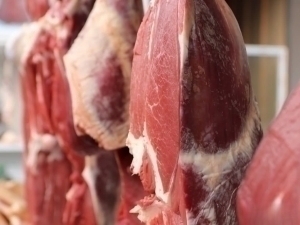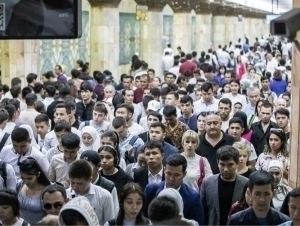Uzbekistan’s cheap meat prices: Market reality behind the numbers
Local
−
12 May 2025 15677 2 minutes
The Uzbek Ministry of Agriculture has stated that Uzbekistan ranks among the countries where meat is sold at the lowest prices globally. Official statistics indicate that 1 kg of beef costs between 65,000 to 130,000 UZS.
However, despite these figures, the reality at market stalls tells a different story. The ministry claims:
"At discounted markets: 1 kg of beef and lamb costs 65,000–75,000 UZS;
At retail stalls: Prices range from 90,000–95,000 UZS;
At supermarkets, Meat is sold for 95,000–100,000 UZS."
These figures prompt skepticism about whether meat is truly cheap—particularly in a country where the average monthly salary hovers between 3–4 million UZS.
To assess affordability, it's more accurate to compare meat prices against wages rather than international costs. For example:
Swedes pay $46 per kg of beef—but this amounts to just 1% of their monthly income.
Uzbekistan’s average household of four consumes 1 kg of beef per week, meaning they spend 10-13% of their monthly salary on meat.
This shifts the definition of cheap—making beef seem far less affordable compared to developed economies.
Meat stalls often sell bone-in or fatty cuts at premium “lean meat” prices. While statistics claim high meat consumption, the reality is different. For many Uzbek families, buying 1 kg of lean beef has become a rare expense, often reserved for special occasions.
The ministry compares Uzbek meat prices to other countries, stating:
- Russia: $10–12 per kg;
- Belarus: $6–8 per kg;
- Kazakhstan: $7–11 per kg;
- Tajikistan: $8–10 per kg;
- Turkey: $12–14 per kg;
- Sweden: $46.2 per kg;
- South Korea: $28 per kg.
While these comparisons suggest Uzbekistan has some of the lowest meat prices, it does not necessarily translate to affordability for local consumers.
Official figures paint an optimistic picture, but real market conditions tell another story. While authorities claim that meat is inexpensive, families know firsthand how much of their earnings are spent on basic groceries.
Each time official reports aim to reassure the public with statistics, markets tell a silent truth—and it’s reflected in empty shopping baskets.
Live
All



